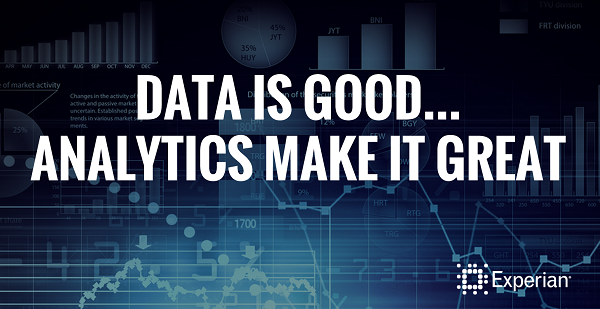All posts by Craig Boundy

 Forbes Magazine recently named Experian among the top 100 innovative companies in the world for the second year in a row.
Forbes has a rigorous selection methodology that places an emphasis on what organizations’ investors see as the most innovative today, but also the companies that investors believe will continue to be the most innovative in the future; Forbes calls this methodology the Innovation Premium. Put simply, it’s the expectation that a company will launch new products and services and enter new markets to generate growth.
Forbes Magazine recently named Experian among the top 100 innovative companies in the world for the second year in a row.
Forbes has a rigorous selection methodology that places an emphasis on what organizations’ investors see as the most innovative today, but also the companies that investors believe will continue to be the most innovative in the future; Forbes calls this methodology the Innovation Premium. Put simply, it’s the expectation that a company will launch new products and services and enter new markets to generate growth.

 Our world today runs on data. It's changing the way we browse the Internet, run our businesses, treat medical patients and invest in technology. It's the key to solving society's biggest problems: famine, disease, poverty and ineffective education. And it is powering the global economy.
But the data-driven economy is at a crossroads. With the eruption of information, we also open ourselves up to new risks and privacy concerns. As companies adopt more interconnected products and systems, the "Internet of Things" could usher in the next wave of challenges that range from data breaches to other potential privacy concerns if information is used improperly. As a society, we must decide whether to champion the explosion of connected information or allow its detractors to significantly constrain the innovation and growth ahead.
Our world today runs on data. It's changing the way we browse the Internet, run our businesses, treat medical patients and invest in technology. It's the key to solving society's biggest problems: famine, disease, poverty and ineffective education. And it is powering the global economy.
But the data-driven economy is at a crossroads. With the eruption of information, we also open ourselves up to new risks and privacy concerns. As companies adopt more interconnected products and systems, the "Internet of Things" could usher in the next wave of challenges that range from data breaches to other potential privacy concerns if information is used improperly. As a society, we must decide whether to champion the explosion of connected information or allow its detractors to significantly constrain the innovation and growth ahead.

Today, Experian and the nationwide credit reporting agencies announced another important step in our work to improve the credit lives of consumers and create a healthier financial ecosystem. The settlement between 31 state attorneys general and Experian, Equifax and TransUnion concludes months of productive discussions and our industry is proud of the results.

Experian’s goal is to help consumers understand and actively engage in their credit life because it plays such an important role in building a secure financial future. Today marked another milestone in this quest. In a positive step for consumers and the U.S. consumer credit industry, Experian (along with the other two nationwide credit bureaus Equifax and TransUnion), announced the National Consumer Assistance Plan (NCAP) – a program that will further enhance our ability to collect complete and accurate consumer information, and provide consumers more transparency and a better experience when interacting with credit bureaus about their credit reports.

Big data received a lot of press coverage in 2014; unfortunately, it wasn’t all kind. That’s too bad; because it’s not fair to lay the blame for every security lapse or e-mail misdeed squarely on big data. The truth is that some of the very technologies that are considered big data are in fact the same ones that best protect us from abuse. Like most technologies, big data can be used for good or it can be abused. However, I believe that the good that big data brings far outweighs any accompanying risks. While data security begins with common sense, and we must all deploy data security best practices, we should also appreciate the value in what big data offers.

 The power of data is good.
Couple it with analytics and it becomes great.
Derive real and tangible insight from this process, and you are left with a very potent tool to affect real change and do a lot of good in the process.
At Experian, we have deep experience harnessing the power of data, in fact, we have been doing it since 1897. Using our insights to help merchants and consumers by providing an annual credit reference directory, we were using “big data” before big data was a buzz word.
The power of data is good.
Couple it with analytics and it becomes great.
Derive real and tangible insight from this process, and you are left with a very potent tool to affect real change and do a lot of good in the process.
At Experian, we have deep experience harnessing the power of data, in fact, we have been doing it since 1897. Using our insights to help merchants and consumers by providing an annual credit reference directory, we were using “big data” before big data was a buzz word.